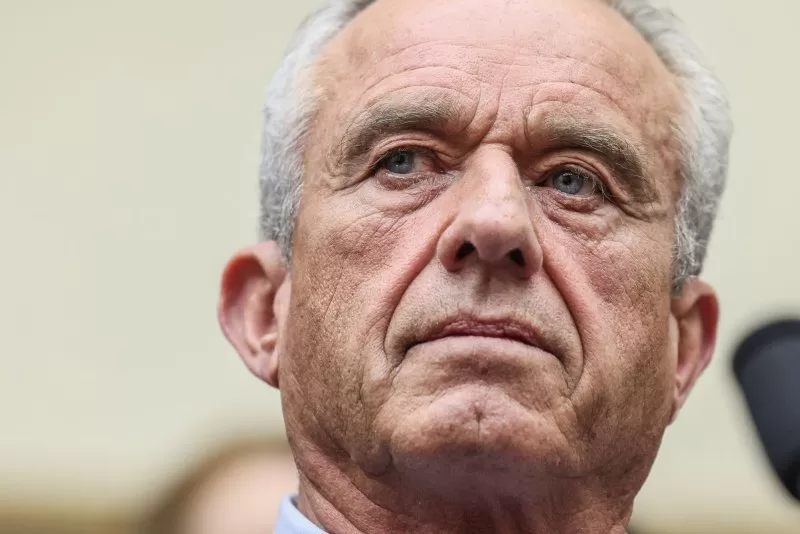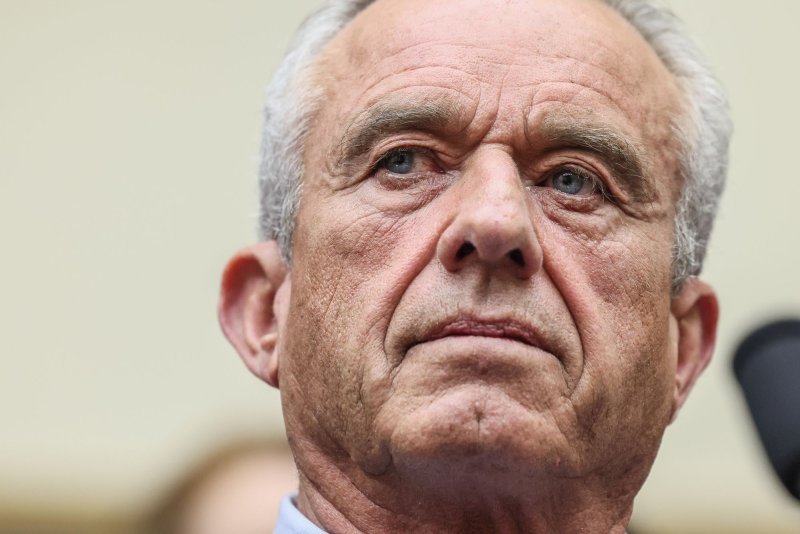The North Carolina Supreme Court on Monday sided with Robert F. Kennedy Jr., ordering his name to be removed from the state’s November general election ballot. File Photo by Jemal Countess/UPI |
License PhotoSept. 10 (UPI) — A divided Supreme Court of North Carolina has ruled to remove Robert F. Kennedy Jr.’s name from the state’s general election ballot, handing the former presidential candidate a legal victory in his effort to erase his presence from voting cards in battleground states.
The Tar Heel State’s high court ruled 4-3 Monday to affirm an appeal court’s ruling to remove the former presidential candidate from November’s ballot, which the North Carolina State Board of Elections late last week sought to overturn.
“We acknowledge that expediting the process of printing new ballots will require considerable time and effort by our election officials and significant expense to the State. But that is a price the North Carolina Constitution expects us to incur to protect voters’ fundamental right to vote their conscience and have that vote count,” the court said in its order.
Kennedy, 70, had thrown his name into the presidential race as a long-shot independent candidate, but suspended his campaign Aug. 23, despite months of campaigning and a signature drive that placed his name on nearly two dozen state ballots.
In withdrawing, the known conspiracy theorist endorsed Republican nominee Donald Trump for president while stating he would remove his name from the ballots of 10 battleground states.
In North Carolina, Kennedy asked the courts to force the election boards to remove his name from the ballots after the state officials denied his request.
Superior Court Judge Rebecca Holt sided with the state, ruling Thursday, one day before absentee ballots were to be sent out under state law, that the harms of removing Kennedy’s name would be greater felt by North Carolina than leaving it as is would cause the defendant.
“Removing Plaintiff from the ballot at this late date would force the State and counties to expend significant resources to reformat and reprint ballots,” Holt wrote, adding that removing Kennedy from the ballot and reprinting the voting cards “will necessarily mean that voters have at least two fewer weeks in which to vote.”
Kennedy then challenged that ruling, with an appeals court reversing the lower court’s order, which the state then took to the North Carolina Supreme Court.
In its order Monday, the state’s high court ruled that to include Kennedy’s name would present an inaccurate list of candidates on the ballot and potentially disenfranchise “countless voters who mistakenly believe that plaintiff remains a candidate for office.”
“The trial court did not appropriately weigh this consideration in its ruling,” the court said, “instead focusing on the minimal harm to plaintiff himself and the significant resources the State would need to expend to create an accurate ballot for this election.”
On Friday, the North Carolina State Board of Elections said more than 2.9 million ballots had already been printed before the court of appeals’ order came down and that there are 2,348 different ballot styles in the state.
Karen Brinson Bell, director of state elections, directed counties in an email Friday evening to prepare for ballots to go out to absentee voters now later than Sept. 21 but to not send any out until a date is determined.
The Monday ruling came on the same day the Michigan Supreme Court ruled against Kennedy, maintaining his name on the Great Lake State’s ballot.
His name was also ordered to remain on Wisconsin’s ballot.

